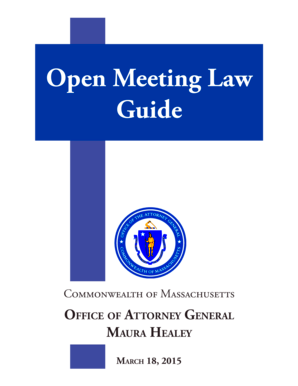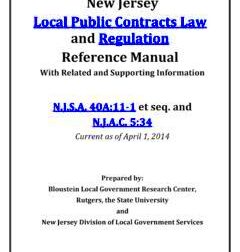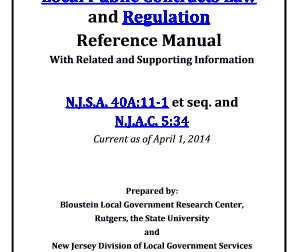Massachusetts Open Meeting Law Guide
The Massachusetts Open Meeting Law aims to ensure transparency in government meetings. It promotes the idea that government should be open and accountable to the public. By following this law, public bodies encourage community engagement and provide citizens with the opportunity to participate in governmental processes. This guide will break down the essential aspects of the law, including its provisions and who it affects.
Key Provisions of the Law
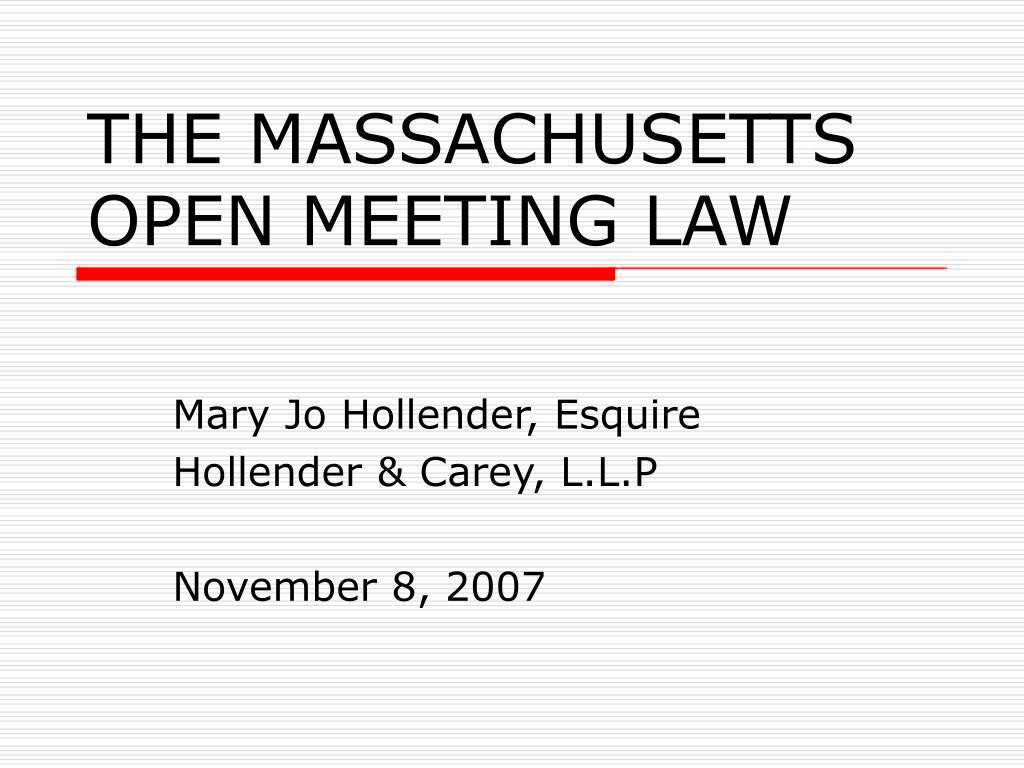
The Massachusetts Open Meeting Law includes several key provisions that all public bodies must follow:
- Meeting Definition: A meeting is any gathering of a quorum of a public body to discuss business.
- Notice Requirements: Meetings must be posted at least 48 hours in advance, excluding weekends and holidays.
- Agendas: Public bodies must prepare an agenda that outlines the topics to be discussed.
- Minutes: Accurate minutes must be kept for all meetings and made available to the public.
- Public Participation: Citizens have the right to attend meetings and participate in discussions.
These provisions help create an environment where transparency and accountability thrive. When public bodies adhere to these rules, they foster trust and confidence within the community.
Who is Subject to the Open Meeting Law
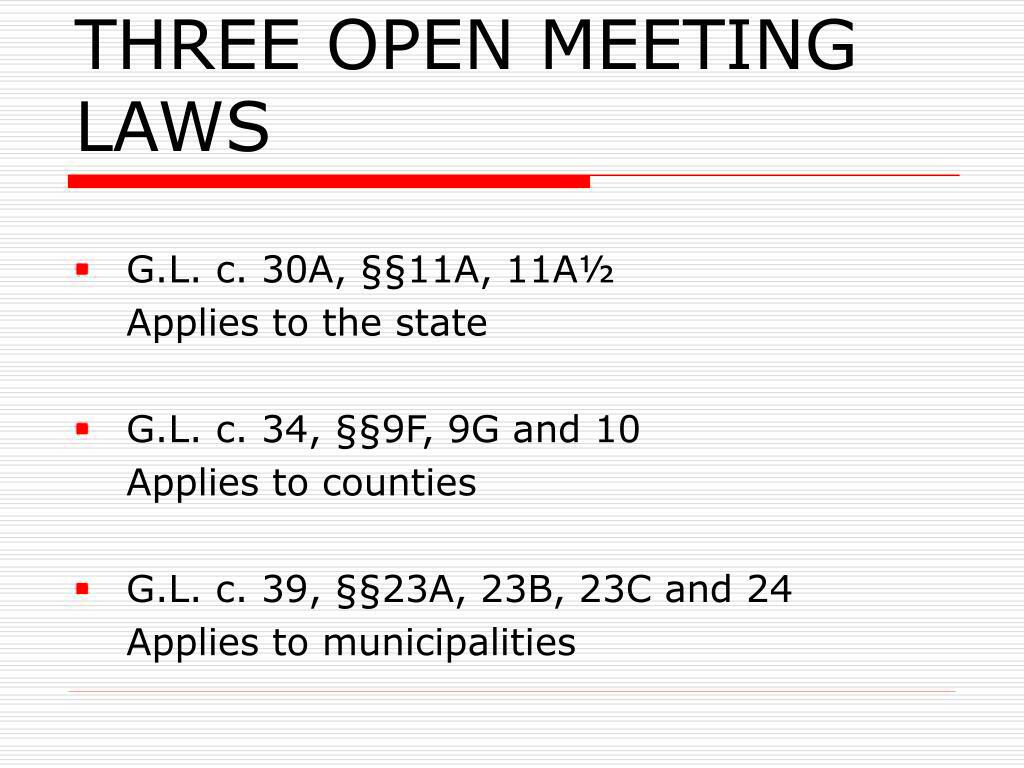
The Massachusetts Open Meeting Law applies to a range of public bodies, including:
- State Agencies: All state departments and agencies must comply.
- Local Government Entities: This includes city and town boards, committees, and councils.
- School Committees: Public school boards and committees are required to follow the law.
- Other Public Bodies: Any other bodies created by law or appointed by a public entity fall under this law.
Understanding who is subject to the Open Meeting Law helps citizens know which meetings they can attend and participate in. It’s crucial for ensuring that everyone has a voice in local governance.
Requirements for Notice and Agenda
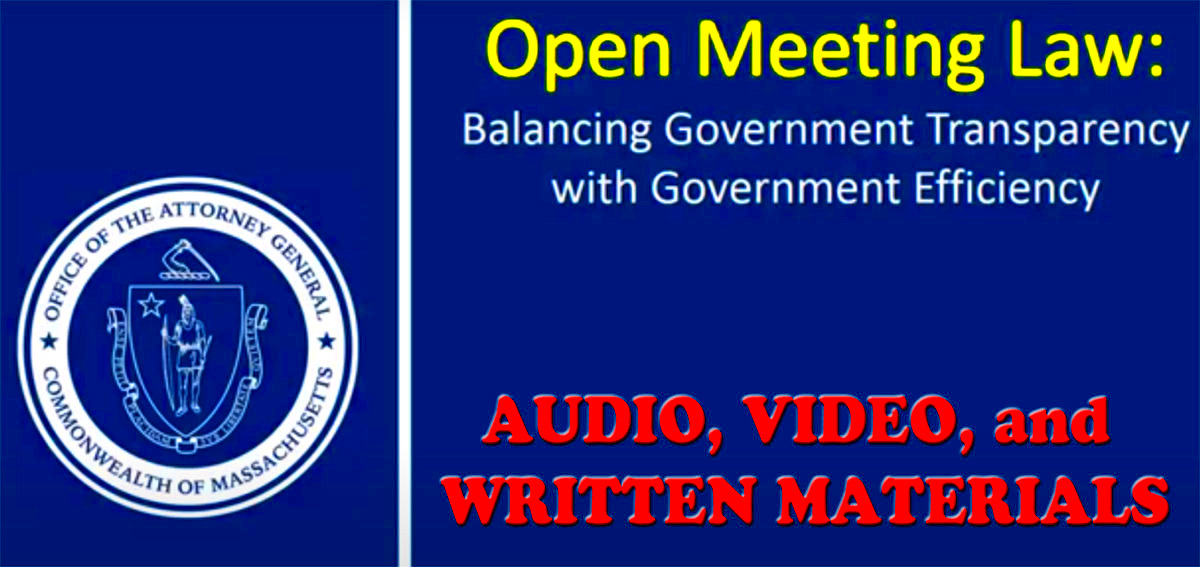
One of the essential aspects of the Massachusetts Open Meeting Law is the requirement for proper notice and agenda setting. This ensures that the public is well-informed about when and where meetings will occur, promoting transparency in government. Understanding these requirements can help citizens engage more effectively in local governance.
Here are the key requirements for notice and agenda:
- Advance Notice: Meetings must be posted at least 48 hours in advance. This excludes weekends and holidays.
- Posting Location: Notices should be posted in a public place accessible to all, such as a town hall or on the public body’s website.
- Meeting Agenda: An agenda must accompany the meeting notice, clearly outlining the topics to be discussed.
- Detailed Descriptions: Each item on the agenda should be described in enough detail so that the public understands what will be discussed.
These requirements help ensure that everyone has the opportunity to participate and voice their opinions. By knowing when meetings are happening and what topics are on the agenda, citizens can better prepare to engage in the discussions that matter to them.
Conducting Meetings in Compliance
Conducting meetings in compliance with the Massachusetts Open Meeting Law is crucial for maintaining public trust. Compliance means adhering to the rules set out in the law while fostering an open environment for discussion.
Here are some important practices to follow:
- Start on Time: Begin meetings promptly as scheduled in the notice.
- Follow the Agenda: Stick to the agenda to keep the meeting organized and on track.
- Allow Public Input: Provide opportunities for public comments, encouraging participation from those in attendance.
- Record Minutes: Ensure that minutes are accurately recorded, detailing decisions made and actions taken.
- Ensure Accessibility: Make sure meetings are accessible to individuals with disabilities, providing necessary accommodations.
By following these practices, public bodies can create a welcoming environment for community involvement, ensuring that the law’s intent is honored.
Exceptions to Open Meeting Requirements
While the Massachusetts Open Meeting Law emphasizes transparency, there are specific exceptions where meetings may not be open to the public. Understanding these exceptions is vital for both public bodies and citizens.
Here are some notable exceptions:
- Executive Sessions: Certain discussions, like those involving personnel matters or litigation strategies, can occur in private.
- Negotiations: Meetings discussing collective bargaining agreements may also be held behind closed doors.
- Security Matters: Discussions about security measures for public facilities can be exempt from public access.
- Confidential Information: Any meeting discussing sensitive or confidential information that could harm public interest may be held privately.
It’s important to note that even in these exceptions, public bodies must provide notice of the meeting and its purpose. Transparency remains key, and understanding these exceptions helps citizens navigate the complexities of public meetings.
Penalties for Violating the Law
Violating the Massachusetts Open Meeting Law can have serious consequences for public bodies. These penalties are in place to ensure that transparency and accountability are upheld. Understanding the potential repercussions can help encourage compliance among those in governance roles.
Here are the key penalties that can result from violating the Open Meeting Law:
- Individual Penalties: Members of a public body can face fines of up to $1,000 if found guilty of willfully violating the law.
- Legal Action: Citizens have the right to file lawsuits against public bodies for non-compliance, which can lead to further legal costs.
- Order for Compliance: Courts may issue orders requiring a public body to comply with the law, and failure to do so can lead to additional penalties.
- Invalidation of Decisions: Any actions taken in violation of the law may be deemed invalid, which could impact important decisions made by the body.
These penalties serve as a reminder of the importance of adhering to the Open Meeting Law. Public officials must be diligent to avoid these consequences, fostering a culture of transparency in government.
Resources for Further Information
Understanding the Massachusetts Open Meeting Law can be complex, but several resources are available to help. Whether you’re a public official or a concerned citizen, these resources can provide clarity and guidance.
Here are some valuable resources to explore:
- Massachusetts Attorney General’s Office: They offer detailed guidelines and FAQs about the Open Meeting Law on their official website.
- Local Government Websites: Many cities and towns provide information on their websites about local compliance and meeting schedules.
- Public Records Division: This division within the Secretary of the Commonwealth’s office provides training and resources related to public meetings and records.
- Legal Aid Organizations: Various nonprofit organizations offer assistance and resources for citizens who want to understand their rights under the law.
Utilizing these resources can empower citizens and public officials alike to better navigate the requirements of the Open Meeting Law and promote transparency in their communities.
Frequently Asked Questions
Understanding the Massachusetts Open Meeting Law can raise many questions. Here are some common inquiries that may help clarify any uncertainties:
- What is the purpose of the Open Meeting Law?
The law aims to ensure transparency and accountability in government by allowing the public to participate in government meetings. - Who can attend these meetings?
Any member of the public can attend meetings held under the Open Meeting Law, as long as they are properly noticed. - What happens if a meeting is not properly noticed?
If a meeting is not properly noticed, any actions taken during that meeting may be invalidated. - Are there any penalties for individuals?
Yes, individual members of a public body can face fines if they are found to have willfully violated the law. - Can a public body hold a closed meeting?
Yes, under certain exceptions, public bodies can hold closed meetings for specific purposes, such as discussing personnel matters or litigation.
These FAQs address some of the most common concerns and help demystify the Massachusetts Open Meeting Law, promoting a better understanding of citizens’ rights and responsibilities.
Conclusion
In summary, the Massachusetts Open Meeting Law plays a crucial role in promoting transparency and accountability in government. By understanding the requirements for notice and agenda, the process of conducting meetings, and the penalties for violations, public officials and citizens alike can engage more effectively in the democratic process. Awareness of resources for further information and frequently asked questions helps demystify the law and encourages active participation in local governance. By adhering to these guidelines, we can foster a more open and inclusive environment where everyone has the opportunity to voice their opinions and contribute to the decision-making process.
